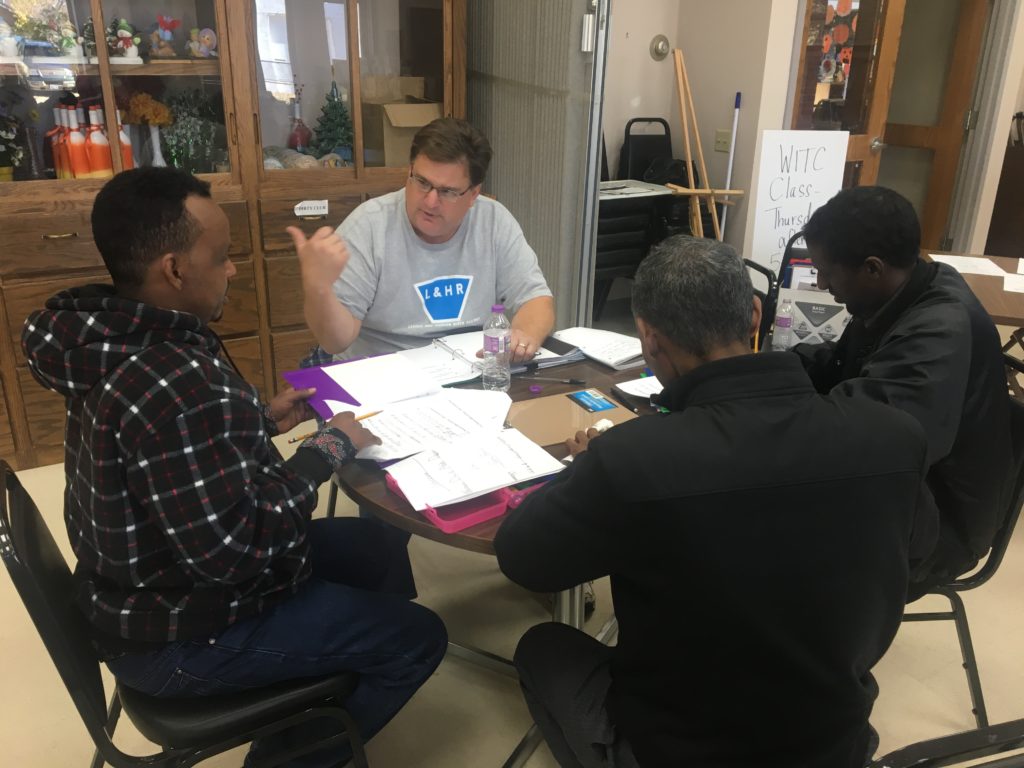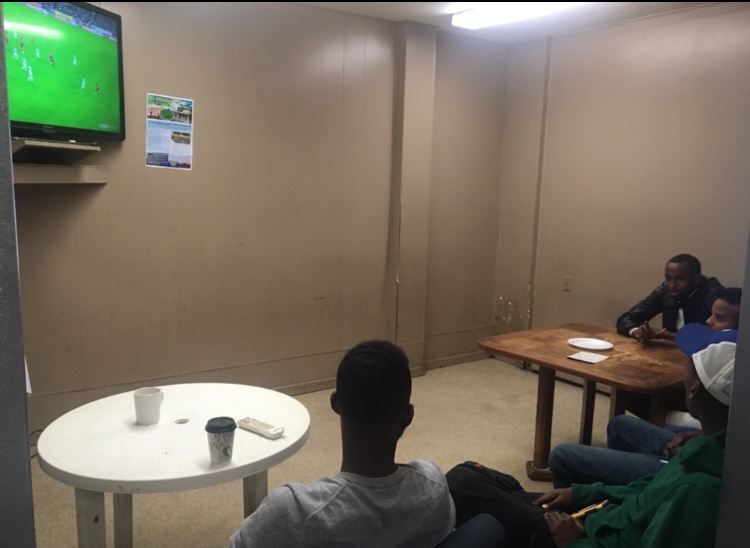At the Barron Public Library a heavyset gentlemen wearing a gray shirt and blue jeans, with glasses hanging from his face, sat at a table between three Somali immigrants. Dean Freimund was helping the immigrants study for their upcoming citizenship test to become legal residents in America. Even though some citizens in Barron still struggle to accept the Somali immigrants into their community, Freimund knows he’s doing the right thing.
Born in Plymouth Wisconsin, Freimund felt the call in his life to be a minister when he was 20-years-old. He spent the next 20 years of his life in ministry before leaving Plymouth and settling in Barron, Wisconsin. When the Somalis began to arrive, he didn’t think it was accident.
“I believe God bought the Somali here, he hates vanilla ice cream every day of the week,” Freimund said, referring to the majority white population in Barron and lack of diversity. “Without the Somali here, Barron would be boring.”

Sitting with Freimund at the table were three of the immigrants he believed God bought to him. Warsme, Abdi, and Daud. Warsme wore a plaid sweater jacket with blue jeans. Daud and Abdi both wore black thin jackets and blue jeans. All three of the Somali immigrants had been in Barron for six years. Although they still struggle to speak English, they’re able to comprehend short phrases. None of them had a negative word to say about the town of Barron.
“Out of 100 percent maybe 5 percent are not nice,” said Warsme referring to how their treated by the Barron community. “We working together, helping together; a lot of people very good.” Warsme continued, saying, “We don’t want problems here.”
Passing the citizenship test is extremely important to Warsme. He has children in South Africa and wants to eventually bring them to America in order for them to become citizens. However before that happens, he needs to become a citizen himself. He sends between $800-1,000 to his family every month.
Freimund believes it’s his duty to help immigrants like Warsme any way he can. He views himself as an ambassador to the community and often has many religious conversations with the Somali immigrants.
“I’m not here to convert them,” Freimund said. “I’m here to talk about God; if they become Christians, they become Christians; that’s not my decision, I can’t save them.”
The citizenship class wrapped up, and the conversation moved to the Somali Tea room, which is just a block from the library. Best described as the Somali version of a typical American bar, the Somali tea room is a place where men can come to relax with their friends, watch soccer—which is always on—play board games, and, of course, drink piping hot tea.

Although Freimund said he is often the only white guy in the tea room, he’s always been treated with the upmost compassion by the Somali immigrants. The Somalis refuse to allow payment for tea.
“If Jesus Christ drove his Pontiac through Barron, if he had to stop anywhere he would come to the Somali tea room,” said Freimund, making a point of the friendliness the Somalis continue to display to him and strangers alike.
Freimund feels one of the reasons the Somali are so content in Barron is that compared to the countries they fled violence from, Barron is perfect. “They’re happy they’re here and happy it’s boring.”